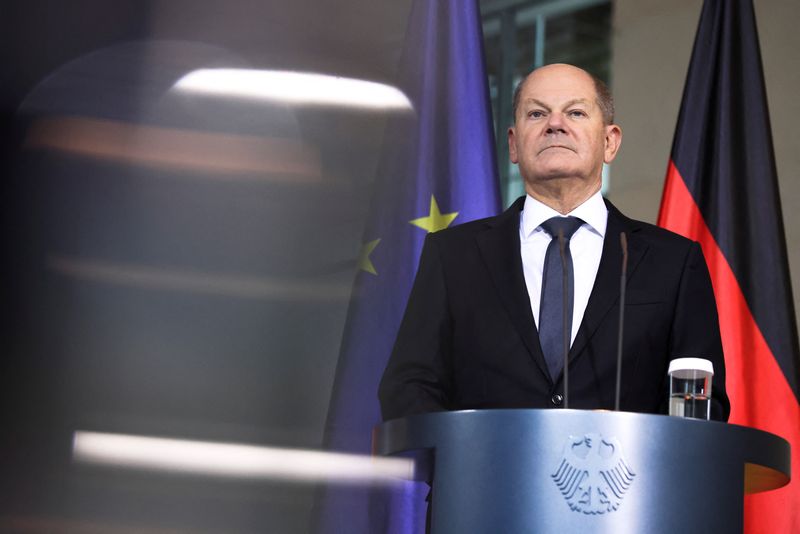
© Reuters. German Chancellor Olaf Scholz holds a press conference on the day he meets with representatives of migrant organisations and networks of people with immigration histories in Berlin, Germany, February 5, 2024. REUTERS/Liesa Johannssen/File Photo
BERLIN (Reuters) – German Chancellor Olaf Scholz on Monday declined to consider corporate tax reform ideas floated by his ministers to revive the economy, saying the focus should instead on finally passing an existing draft law aiming to offer companies fiscal relief.
Germany’s economy and finance ministers on Sunday floated the idea of reforming the country’s corporate taxes, aiming to make local companies more competitive given challenges that include high energy costs.
Asked about the debate at a news briefing, Scholz said the focus should instead be on the Growth Opportunities Act, which envisages tax relief of around 7 billion euros annually and already passed the lower house of parliament last November.
The law is now stuck in a parliamentary mediation committee as it faces opposition in the Bundesrat, the legislative body that represents the 16 German states at the federal level. The states and municipalities would have to shoulder the bulk of the expected tax revenue shortfall.
“This is what we should be focusing on, this is practical, tangible and will take effect quickly,” Scholz said.
Economy Minister Robert Habeck was quoted in weekly Welt am Sonntag on Sunday as saying it was important to consider tax relief and tax incentives for investment given that Germany has “an overall corporate taxation that is no longer competitive and conducive to investment”.
Habeck has previously expressed concern the states will water down the Growth Opportunities Act so much it will no longer have an impact.
Separately, Finance Minister Christian Lindner told state broadcaster ARD on Sunday that there was agreement that German companies were not competitive internationally, urging swift action to put together a relevant policy package.
One suggestion he made was to exempt companies from the so-called solidarity tax – introduced after reunification to support poorer states in eastern Germany.
Source: Investing.com
























